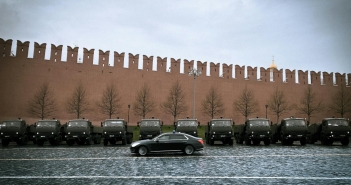I feel that Europe, in its state of degeneracy has passed its own death sentence.
Stefan Zweig, The World of Yesterday, (1942)
The Best Lose All Conviction…
This piece revisits aspects of The Limits of Multiculturalism – a piece I wrote last year warning of a reversion to the 1930s in terms of austerity, extremism and declining intellectual standards. Now in the wake of a pandemic accelerating these trends, this article draws intellectual inspiration from heirs of the Enlightenment, especially Albert Camus, and also Frantz Fanon.
First published in 1918, and translated into English in 1926, Oswald Spengler’s The Decline of the West was perhaps the most influential text of the 1930s.[i] He blamed what he saw as a declining European civilisation on the dilution of a mythical Aryan race – whether Germanic or Anglo Saxon. Spengler influenced Hitler, although he disliked the biological determinism of the Nazis, but still provided an ideological impetus for the extermination of undesirable races in the Holocaust or Shoah.
In the heady days of the post-Cold War 1990s, when Francis Fukuyama was announcing The End of History and Bill Clinton was feeling your pain, mythical and biological views on race seemed an anachronism, increasingly confined to the dustbin of history. But sadly today a variant on Social Darwinism – underpinning an incipient corporate fascism and acting as the handmaiden to racism in another guise – has found a new suit and tie.
We face an economic depression that is likely to be of even greater scope than the Great Depression of the 1930s, as various categories of workers are furloughed – the new word du jour – indefinitely, and SMEs are moped up by multinational giants that are assuming Blue Whale proportions, if not their unfortunate plight in nature. This coincides with impending environmental meltdown that could generate further pandemics. Moreover, social isolation over the course of the pandemic is limiting associational ties, adversely affecting the poor and disadvantaged.
Alongside a long-term intellectual decline in journalism, mainly brought about by the arrival of the Internet which has turned much of it into glorified PR – or churnalism[ii] to adopt Nick Davies’s expression – with even the global The Guardian now shedding jobs at the height of the pandemic[iii] – and debilitating academic over-specialization, linked to the funding of universities through philanthrocapitalism. In this barren landscape Spengler’s archaic notions thrive.
Moreover, an age of chaos and uncertainty allows strongmen like Putin, Erdogan and Orban to assert domination. Spengler’s demonization of the other – now reimagined in the silhouette of a contagious disease – is right back in focus. Listen carefully and you will recognise that the Social Darwinism of another age is the rallying cry of neo-liberalism, as an age of cartels and select groups brings exclusion and enforced conformity.
Given our intellectual and scholastic deficits, it hardly matters that there is zero empirical evidence for the concept of race, as geneticists have worked out that every person on Earth can trace a lineage back to a single common female ancestor, who lived around 200,000 years ago[iv] Spengler may be a bastardised intellectualism but this is irrelevant if it gains traction in the dark recesses of social media.
‘Guest Workers’
The far-right revives the old ghost, but the centre-right – which is in power across most of Europe and claims to oppose racism – has maintain it in societal structures, such as Direct Provision in Ireland. We also ‘welcome’ guest workers – guestarbeiter – from the Global South as students in wealthy countries such as Ireland, but only to the extent they remain useful. Thus, the number of new international students from outside the European Economic Area (EEA) pursuing higher education in Ireland jumped by 45% between 2013 and 2017 according to a recently released study from the European Migration Network to 18,500.[v]
Yet it doesn’t make a difference to a citizenship or residency application that a person has been resident in Ireland for years on end; while shelling out exorbitant fees to mickey mouse institutions, and ideally housed in a so-called co-living space. In contrast, anyone with an Irish grandfather has an automatic, ‘racial’[vi], entitlement to an Irish passport, and the benefits of citizenship.
Ireland’s societal drift is not an isolated case, as state authorities around the world use the present crisis to adopt authoritarian methods, either through direct elevation of fascists, or through more sophisticated methods of control playing on innate fears of contagious disease, in cahoots with Internet platforms such as Google, Facebook and Twitter that increasingly deny freedom of expression.
There are few safe havens available to migrants any longer, no matter what their status, as seemingly there now exists a permanent state of health emergency[vii] that is likely to be used to exclude ‘undesirable’ entrants. However, at least the pandemic has brought a rupture to an environmentally destructive globalisation that has been working to the benefit of the top 1% for some time.

Image (c) Daniele Idini
Western Intellectual Imperialism
The Meursault Investigation (Other Press 2015) written by the Algerian writer Daoud is a rebuke and a critique of the greatest Algerian, and indeed French, writer of the last century, Albert Camus, in particular his iconic book The Outsider (Hamish Hamilton 1946). Daoud’s criticises Camus’s putative racism or imperialism, or simply a lack of empathy for the murdered Arab. Yet given that the author has been the subject of a religious fatwa in Algeria himself, he is presumably sympathetic to Camus’s rejection of extremism. Daoud’s book concludes with a reflection on an idea that Camus himself would approve of, namely how we should hold on to the precious commodity of truth.
Daoud’s attribution of racism to Camus for accepting continued French control over Algeria, was also made by Edward Said in his Culture and Imperialism (1993). Both are wrong. As a Pied Noirs – a member of the French community in Algeria that emigrated to the French mainland after independence – Camus was doubly despised as an outsider. Having himself experienced racism, or at least xenophobia, his texts should remain formative to our understanding of the challenge of multiculturalism.
It should be stressed that Camus promoted peaceful co-existence between the transplanted French and the native Islamic population, and condemned the torture and death penalty inflicted on the indigenous rebels by the French authorities, memorably depicted in Gillo Pontecovro’s 1966 film The Battle of Algiers. But he also recognised there was going to be a bloodletting in Algeria in the aftermath of independence arising from extremism.
Above all Camus was a product of the Enlightenment and the French tradition of letters and reason. Throughout his novels that encompass his native Algeria along with the French Revolutionary period (The Rebel, 1951), we find a distaste for fundamentalism, whether secular or religious. This should be taken to include extreme advocates of multiculturalism that deny the significance of a country’s cultural inheritance, or diminish the value of common values and norms of behaviour in a polity, while assuming that any state can easily absorb an infinite number of new arrivals.
Today an influential voice, such as Camus’s, is sorely lacking to courageously espouse universal human rights and the rule of law, against the barbarity of relativism.

Albert Camus in 1957 by Robert Edwards
Edward Said
In works such as Culture and Imperialism (1994) and Orientalism (1978) Edward Said – who I argue unfairly criticised Camus – emphasises the role of literature in the imperialist project of civilising ‘inferior’ races In his analysis of texts such as Graham Greene’s The Quiet American (1955) and Naipaul’s Bend in the River (1979) Said demonstrates how agents of imperialism operate, and how this morphs into murder and subversion, thereby destabilising so-called primitive post-colonial societies.
In dispassionate fashion, Said also attacks virulent nationalism and an often unstated tribalism – the ideologically indistinguishable Fine Gael and Fianna Fail parties from Ireland are good examples – increasingly evident in our time. He asserts ‘Patriotism, chauvinism, ethnic, religious and racial hatreds can lead to mass destructiveness.’[viii] Said also cites Conor Cruise O’Brien to the effect that imagined communities of identity are hijacked by the petty dictators of state nationalism. I fear we are heading in that direction without the reassertion of universal Enlightenment values.
Joseph Conrad’s Hearts of Darkness (1899) about the deranged Colonel Kurtz is perhaps the classic text of colonialism,. Set in the Belgian Congo under King Leopold’s genocidal regime of plunder, we see how the civilising mission has mutated into barbarism and murder. Francis Ford Copolla would later recycle the tale into an indictment of the American civilising mission in Vietnam, with Marlon Brando playing Kurz, with utterly contrived insanity.
Colonialism was a variation, or perhaps a precursor, to the theme of Spengler, often caricaturing the lazy and sensual native, set in contrast to the disciplined, and sexually uptight, coloniser. This required and justified the imposition of jackbooted domination to force submission on the shiftless and degenerate other – a necessary psychological tool conditioning the humanity of both sides.
Yet the coloniser often serves as a role model for the colonised, as we have seen in the unhappy drift of many post-colonial states towards dictatorship around the world; or as Homi Bhabha puts it: ‘Although colonised subjects endeavour to imitate or mimic the behaviour of the coloniser, the mimicry is always imperfect – almost the same but never quite.’[ix] This best explains racially motivated homicide, such as we saw in the brutal murder of the English soldier Lee Rigby, and in the beheading of foreigners by ISIS – almost the same but never quite.
New Corporate Colonialism
Frantz Fanon’s provided a profound insight into how colonised peoples – The Wretched of the Earth – are required to pay the debts of the occupying powers. This has been reproduced in our own societies in the form of austerity. The occupying powers are now the corporatocracy, or those with inherited wealth. The only difference from the colonial period is they are no longer all from the same ethnic group. In fact a veneer of diversity is achieved with the promotion of a few specimens with varied pigmentation, and an embrace of safe, politically correct policies that ignores structural racism.
Nonetheless, allegations of racism are used by the corporate vectors of public opinion in a similar way to gender politics: as a mask for self-advancement and the elimination of competition. But we also see attacks against the left through a conflation of anti-Zionism with anti-Semitism. This was clearly evident in the stitch up of former Labour leader Jeremy Corbyn, who failed to grasp how he, a long-time anti-rascist campaigner, could be accused of being racist, and was too nice, or loyal, to comrades who had fallen over the edge into outright expressions of it.
Vast sectors of the developed world are now easy picking for a corporate colonialism facilitated by transnational law firms, and endorsed by governmental and inter-governmental agencies, including the E.U.. Fanon’s warning echoes across time: ‘The people’s property and the people’s sovereignty are to be stripped from them.’[x]
Fanon also pointed to how mental illness, neurosis and de-rationalisation are responses to post-colonial subjugation. This is being revisited under conditions of austerity, which the Covid-19 pandemic is accelerating. It perhaps explains why so many on the far-right seem unhinged. In my own professional practice as a London barrister I have seen a decided increase in unreal vantage points, with some people feeling like spectators in a film of their existence.
So what conclusions can we to draw on multiculturalism from the vantage of post-Brexit-post-Covid-limbo-in-London, and with Euro-wide fascism and racism on the rise, as fixed borders return and semi-permanent exclusion zones are put in place?
Intimations of Decline
Historically, pandemics have inflamed existing xenophobia and led to racial scapegoating. When the incomparably more devastating Black Death arrived in Europe in the 14th century, cities and towns shut themselves off from outsiders, assaulting, banishing and killing ‘undesirables’ – mostly Jews. Through a combination of state propaganda and media hysteria the contagion of fear has reached medieval levels. Racism is on the rise across Europe, even in the U.K. where the legal status of non-nationals is increasingly precarious.
The virus is used as an excuse to mount another attack on beleaguered migrants. Thus the fascist Hungarian Prime Minister, Viktor Orbán, recently announced:
We are fighting a two-front war: one front is called migration, and the other one belongs to the corona virus. There is a logical connection between the two, as both spread with movement.
Meanwhile President Trump has called the virus a Chinese conspiracy, or Kung-Flu
Here I propose three tentative responses, which may not make for easy reading:
- The liberal multicultural consensus based on the rule of law, humanism, tolerance, the promotion of excellence irrespective of race, and a measure of affirmative action to compensation for historic discrimination has broken down. In an age of extremes, even some on the left are demonising the diseased other, but intellectually impoverished commentators refuse to recognise the extent of this. Extremism looks set to get worse even in multicultural Britain, particularly if the economic depression accelerates. This requires a reassertion of intellectualism, Enlightenment values, and interdisciplinary exchange.
- An open door policy, or really one designed to drive down labour costs, promoted by Angela Merkel and others cannot be maintained. Focus should now shift, if it all possible to addressing the underlying challenges of post-colonial states, especially in Africa, through debt relief and an end to the exploitation driving many conflicts. A New Deal for Africa is required. Italy cannot be expected to accommodate the millions that are seeking refuge there each year under the Dublin Regulation. If the European Union is worth anything, the existing refugee burden has to be shared more equally, and those states such as Hungary that refuse to participate should be sanctioned or excluded from the Union altogether.
- The U.K. extradition courts look set to be flooded with the deportation of the undesirable through revivified warrants. Racially motivated crimes and targeting will continue apace and seem likely to be unchecked by functioning state authorities. This demands a response, challenging the nonsense of racism, but in a way that does not consolidate stereotypes, as I fear the Black Lives Matters movement does. Iconoclasm and statue-breaking have a role to play, but let’s not throw the baby out with the bathwater. Churchill was in many ways a barbarous imperialist but without him Europe would have succumbed to Nazism. There are civilized institutions and literary canons worth upholding.
It might come as a surprise that I am more optimistic about the U.K. than elsewhere in Europe; even Boris Johnson for all his buffoonery during the pandemic is not a savage by comparison with the Mussolini-lite characters that are increasingly evident in European governments.

Look familiar?
Relativism and Human Rights
The dominant conception of human rights among legal scholars around the world – including David Deng, An Naim, Yash Pah Ghai, Upednra Baxi, and Richard Rorty – is of a universality adapted to the practices and norms of a given society. So if multiculturalism is to regain traction it must acknowledge universal human rights, and not blithely accept archaic tribal practices or religious extremism; yet at the same time we should retain what is enduringly decent in a particular society.
Fanon and Said provided an insight into the destructive effect of post-colonial racism. Under neo-liberalism we now see an overt far-right fascism, but also a structural form under the centre-right, which is overseeing the impoverishment of all but the super-rich, while maintaining a veneer of inclusivity. Now with an economic and environmental meltdown on the horizon it is time to assert universal Enlightenment values, and fairly allocate the resources of the Earth, while leaving room for diversity and even eccentricity.
Featured Image is of Frantz Fanon 1925-1961.
[i] Richard Thurlow, ‘Destiny and Doom: Spengler, Hitler and ‘British’ Fascism, Patterns of Prejudice, Vol 15, no. 4, 1981, https://www.tandfonline.com/doi/abs/10.1080/0031322X.1981.9969635?needAccess=true&journalCode=rpop20
[ii] Collins Online Dictionary defines this as: ‘a type of journalism that relies on reusing existing material such as press releases and wire service reports instead of original research, esp as a result of an increased demand for news content’, https://www.collinsdictionary.com/dictionary/english/churnalism.
[iii] Jim Waterson, ‘Guardian announces plans to cut 180 jobs’, July 15th, 2020, https://www.theguardian.com/media/2020/jul/15/guardian-announces-plans-to-cut-180-jobs
[iv] Josh Clarke, ‘Are we all descended from a common female ancestor?’ How Stuff Works, https://science.howstuffworks.com/life/evolution/female-ancestor.htm
[v] Untitled, ‘Ireland Number of Non-EEA Students in Higher Education Jumps by 45% Over Five Years’, ICEF Monitor, June 11th, 2019, https://monitor.icef.com/2019/06/ireland-number-of-non-eea-students-in-higher-education-jumps-by-45-over-five-years/
[vi] Ronan McCrea, ‘Covid-19 laces granting of Irish citizenship with danger’ July 14th, 2020, Irish Times, https://www.irishtimes.com/opinion/covid-19-laces-granting-of-irish-citizenship-with-danger-1.4303461
[vii] Kitty Holland, ‘Restrictions on Travelling Abroad May Last Several Years Expert Warns’, Irish Times, July 12th, 2020. https://www.irishtimes.com/news/health/covid-19-restrictions-on-travelling-abroad-may-last-several-years-expert-warns-1.4302672?mode=sample&auth-failed=1&fbclid=IwAR0UPREs1c4aZPlKnVL3ZtC5ZUh5nruoD-5m54MUyf-HvVdP31IXcJVvRFE&pw-origin=https%3A%2F%2Fwww.irishtimes.com%2Fnews%2Fhealth%2Fcovid-19-restrictions-on-travelling-abroad-may-remain-up-to-10-years-expert-warns-1.4302672
[viii] Edward Said, Culture and Imperialism, p.22
[ix] Homi K. Bhabha, The Location of Culture. Routledge, London ; New York, 1994, pp.85-92, https://prelectur.stanford.edu/lecturers/bhabha/mimicry.html
[x] Frantz Fanon, The Wretched of the Earth (1961), p.152




